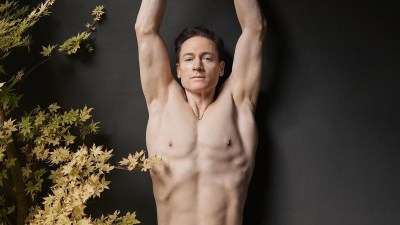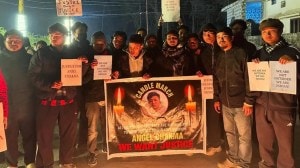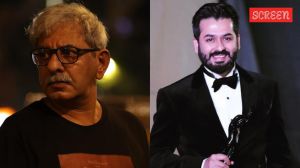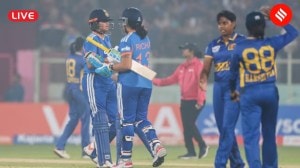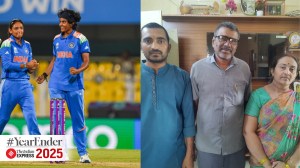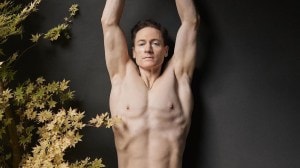Wuthering Whither?
A Bollywood Catherine, a sari-clad Nelly Dean, a Heathciff inspired Amar and a Hindley turned Shekhar. All in Pooja Bhatt's Dhund STAR P...

A Bollywood Catherine, a sari-clad Nelly Dean, a Heathciff inspired Amar and a Hindley turned Shekhar. All in Pooja Bhatt8217;s Dhund STAR Plus, set in early 20th century Ootacummand.
Emily Bronte8217;s Wuthering Heights. Shuddering Heights, Bronte purists would say. But Pooja, who produces the serial and plays its lead role, is clear she does not want to replicate the original. 8220;From the outset we treated Dhund not as a classic, but simply as a love story with universal appeal. The serial is not a clinical study of Wuthering Heights, nor is it intended to be an extension of children8217;s school syllabi!8221; Director Vikram Bhatt agrees: 8220;I wanted to get away from this whole classic8217; syndrome and make a serial based on my own perceptions of the book. The intention has been to focus on certain elements in the book 8212; love, drama, passion, revenge 8212; and make a commercially viable programme.8221;
Television and film productions based on literary works are not new to Indian entertainment. But what made Bhatt choose Wuthering Heights? 8220;The story is complex enough to hold 52 episodes,8221;she explains, 8220;I was attracted to the idea of recreating the dark, brooding world of Bronte8217;s novel in an Indian context.8221; Why a serial and not a film?8221; We could not have made Dhund into a film; the story is too complex to be rendered in a two-and-a-half-hour span8221; Perhaps.
Perhaps, too, the actress is using the small screen to boost her sagging film career? 8220;I am not entering the TV business in the twilight of my film career, nor do I see television as a step-down from films. On the contrary, the small screen is a great medium to experiment with new ideas and actors. Dhund has allowed me to emerge from my family8217;s shadow and make a programe based on my own sensibilities,8221; Bhatt insists, 8220;I am not interested in resurrecting my film career. At 27 I am sitting pretty with 2 National A6wards, which for me is more of an achievement than being part of 10 hit films,8221; she says in a fiery outburst.
Vikram Bhatt, whose Ghulam was one of the biggest blockbusters of recent times, prefers to describe Dhund as a serial inspired by, rather than based on, Wuthering Heights. 8220;Dhund is removed from Bronte8217;s novel both in time and in place,8221; he says, 8220;Set in early 20th. century British India, the serial has a distinct social context.8221; Then there are differences in the telling of the story. 8220;The narrative of the novel, which unfolds through Lockwood8217;s account and Catherine8217;s diary, does not follow a chronological sequence. This works in a descriptive medium, but one cannot go back and forth in time so erratically on television, where the story-telling has to be more gradual in order for the viewers to keep track of the events. Moreover, in the original novel, long periods of time are allowed to pass by without any explanation. But we have had to add scenes to account for everything that happened.8221;
8220;The novel, was all about motivations that are half-buried in the consciousness,8221; adds Vikram, 8220;it8217;s a shade too dark for television. I don8217;t think the viewers are going to watch a serial, week after week, if it is going to upset them. At any rate, I don8217;t want to appeal to the masochist in the viewer. So we have reduced the psychopathic element in the story.8221;
8220;On the whole, the characters have been simplified, their rough edges rounded off,8221; substantiates Pooja, 8220;In the book, Catherine is a rebel without a cause and is inconsistent to the point of being schizophrenic. By contrast, my character, Anjali, has a head on her shoulders, is a more integrated character. Even Amar played by Aly Khan 8212; Heathcliff8217;s 8212; is obsessive but not sadistic. If the audience doesn8217;t have anyone to root for, they won8217;t want to watch the show. The aim is to get the characters out of people8217;s heads and into their hearts.8221;
What about the idea of a woman being in love with two men? 8220;Anjali is not immoral, but someone who is confused between love and friendship,8221; feels Vikram, 8220;Siddharth, whom she marries, is the first man who makes her feel like a woman, yet she bonds with Amar, with whom she has grown up. Moreover, unlike Catherine who encourages Heathcliff to visit her in her husband8217;s absence, Anjali is committed to her marriage. In fact we back-dated the serial by more than half a century from the present times because it still has an old-world morality about it. Pooja is more candid.8221;
Anjali is definitely a free spirit, an unconventional person. But Indian audiences have begun to accept that life does not end with a relationship for a woman. The other day, someone said to me that people would not identify with my serial because it did not have extra-marital affairs. Wow, India is growing up, man!8217; I replied,8221; exclaims the spirited actress. Laughs Vikram Bhatt. 8220;Movies like Kuch Kuch Hota Hai and Dil Kya Kare show a man with two women in his life. Feminists should be happy we are equating men and women in this respect in our serial.8221;
Shot using wide-angle shots and screen-splitting close-ups, Dhund attempts the technical feel of a Bollywood film. The musical score is by Nusrat Fateh Ali Khan and with additional vocals by Shankar Mahadevan 8220;The show may or may not work, but it will be definitely noticed for its look,8221; thinks Pooja, 8220;I have tried, to the best of my capacity, to bring something new to this jaded world of Indian entertainment.8221; Dhund has certainly generated the hype. Will it prove to be thundering heights or blundering heights for Pooja and Vikram remains foggy.
- 01
- 02
- 03
- 04
- 05


